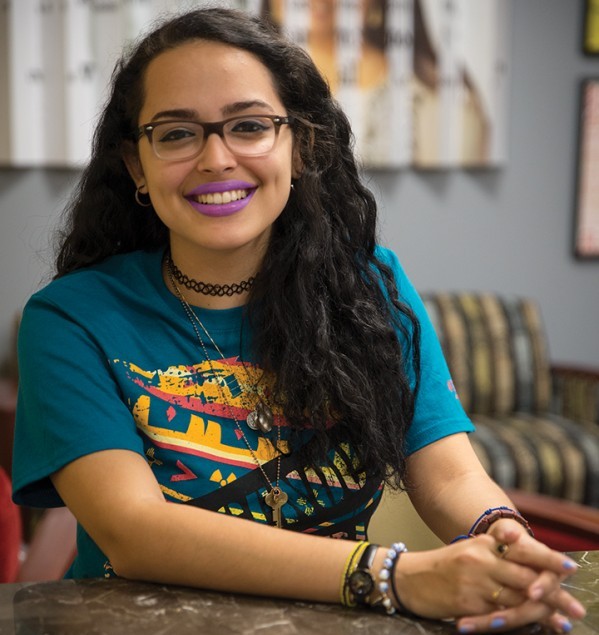As a Latina and a “DACA”mented student, junior journalism major Karla Casique said she is wary about how the outcome of Tuesday’s election might affect her life.
The Deferred Action of Childhood Arrivals policy was created on June 15,2012, by President Obama as a measure to stall deportation for undocumented young people who came to the United States as children, according to immigrationequality.org. Someone who is “DACA”mented is an undocumented person using the DACA program, which helps them go to school while their status is in limbo.
But because of her immigration status Casique, who immigrated to the United States from Venezuela 14 years ago, is unable to participate in that election.
“My life is hanging by a thread,” she said. “This might be the last year that I’m in Maryland depending on what they do with DACA. Since I don’t have agency in what will happen, it’s a worthless type of feeling because I don’t have a say in something that is going to affect me, my career and my education.”
Some undocumented students on the campus have expressed frustration about their inability to vote or participate in voter registration drives, said Yvette Lerma Jones, Latina/o/x Undocumented Student Involvement and Advocacy coordinator.
While groups have been encouraging voter registration on this campus leading up to the election, Lerma Jones said some undocumented students feel that the people leading these drives don’t account for the fact that some students may not be able to vote.
“[Undocumented students] can often feel at times that people leading voter registration drives try to employ some peer pressure and say, ‘You’re like me,” and make a lot of assumptions about who they are approaching,” Lerma Jones said.
On the other hand, Lerma Jones said some students are willing to put their immigration status out when asked in a voter drive.
“The students would often say ‘I can’t vote because I’m undocumented, but I appreciate you being out here doing this because I want those voices of the people that care of my communities to be registered and to take the time to vote on that day’.”
SGA director of governmental affairs, Mihir Khetarpal said there are many steps in the election process, and that voting is only one step. Students can also volunteer for a candidate’s campaign or advocate for an issue they’re passionate about, he said.
“The good news is that for anyone who can’t vote, most of the steps you can take politically…you can still do even if you can’t vote,” said Khetarpal, a junior economics and government and politics major.
Khetarpal described one experience of an SGA legislator as “inspiring” because of the exchange student’s experience to stay involved in the campaign even though she can’t vote in the election.
“[The SGA legislator] still went to Ohio with the college Democrats on campus for Hillary Clinton,” he said. “She thought that it was important to learn about the electoral process even though she couldn’t vote.”
Junior Mwewa Sumbwe, who immigrated to the United States in 2002 from Zimbabwe and is also undocumented, said that having the office of Multicultural Involvement and Community Advocacy on the campus is a great resource for students like herself who want to encourage people to vote or get involved in politics in other ways.
“[MICA’s] UndocuTerps program informs people of our rights as immigrants as well as being able to protest,” said Sumbwe, a community health major. “Whether it’s protesting, marching or just being able to be involved in making that change even though you’re not physically voting.”
While sometimes people think that voting is just a minimum, Lerma said undocumented people don’t see it that way.
“Sometimes the minimum is different for someone else,” she said. “Sometimes that minimum is having a conversation with someone else about why they are voting and why they are voting what way.”
Although Casique can’t vote, she said telling her story and giving her perspective will hopefully encourage people who are on the fence about voting.
“Voting is such a huge honor, privilege and immense responsibility,” she said. “People have died and have fought just to vote. If you’re not going to vote because you’re confused, that comes from a huge place of privilege. Whoever becomes president, whatever happens, you’re going to be fine…you’re not going to be thinking ‘Am I going to be deported?'”
Sumbwe said if she could, she would gladly take someone’s vote if they expressed not wanting to participate in this election.
“The people who chose not to vote, it’s a waste of a vote that I would gladly have and that I would make use of,” she said.



